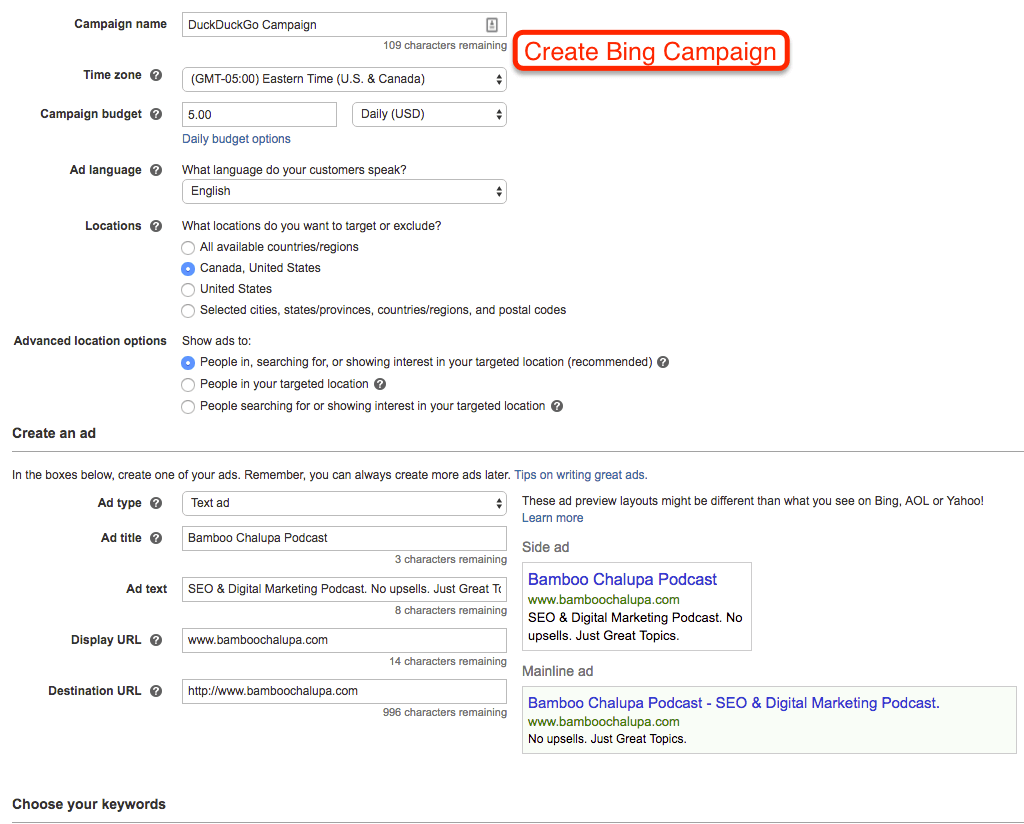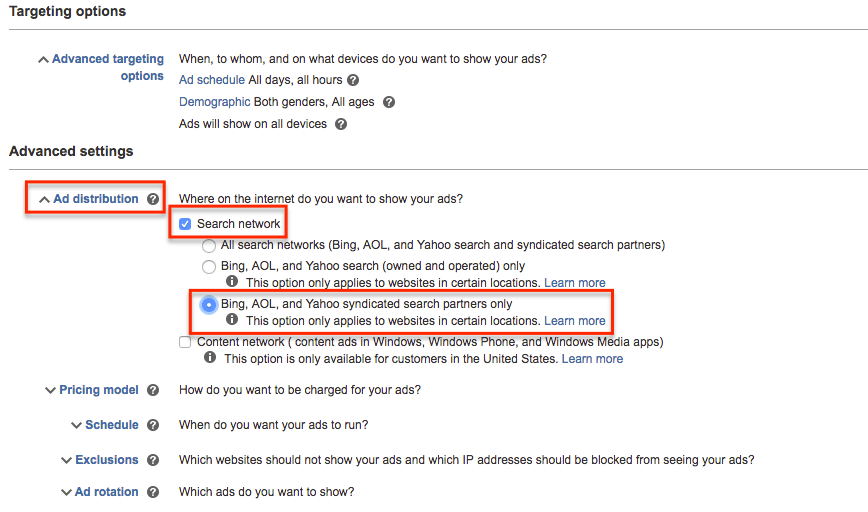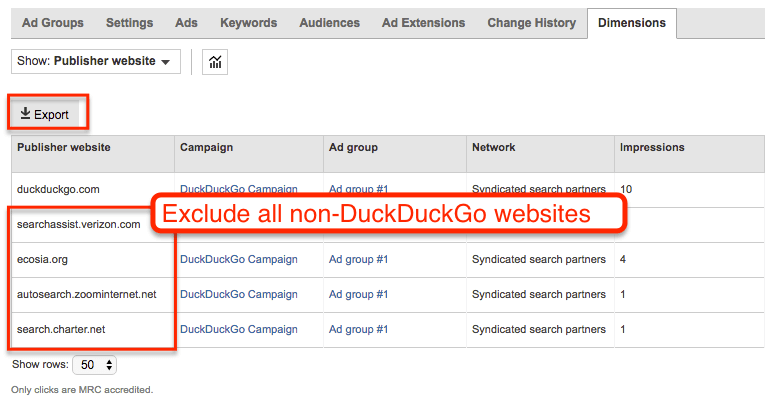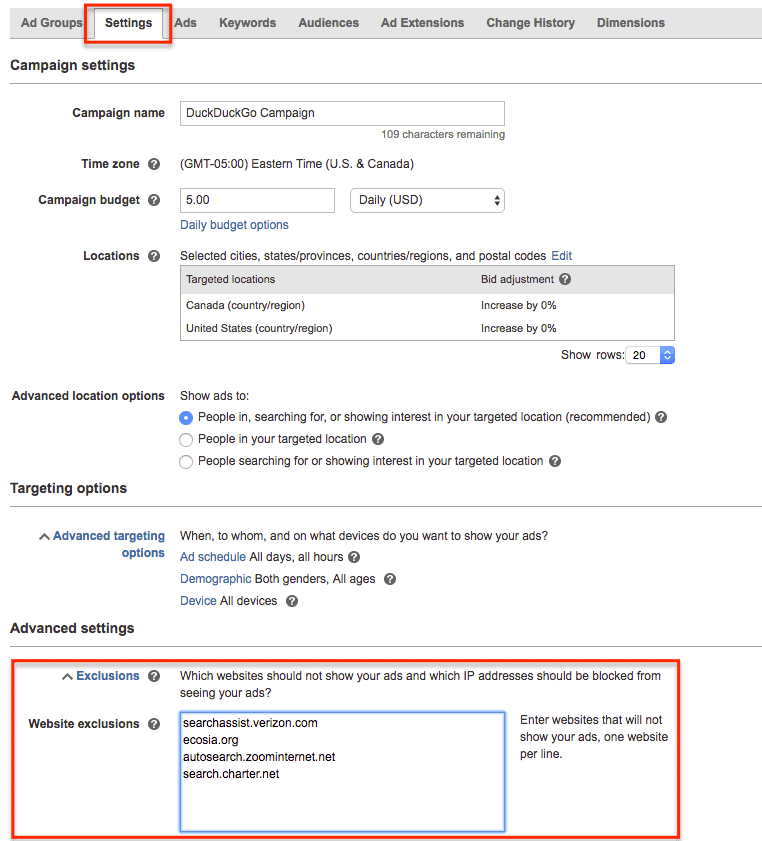DuckDuckGo is an independent search engine that provides web search results without tracking users behavior or search history (like Google does). They are strictly focused on user privacy.
It’s a tiny search engine – like less than 0.50% of the global search engine market.
But it’s also rapidly growing year over year, and past 15 billion queries in 2019. Every time a story comes out about Google’s data trove, “filter bubbles”, the NSA or online privacy – more and more users start to switch to DuckDuckGo.
So even though DuckDuckGo has only a small slice of the search market, it has a significant share among a certain slice of the population – ie, tech-savvy individuals with money who are concerned about their privacy. If you look at US search engine marketshare, it doubles to 1.00%.
If your target customers fit into that bucket – how can you reach them online?
That’s where advertising on DuckDuckGo comes in. DuckDuckGo runs pay per click ads the same as Google, Bing & Yahoo. You run ads based on the search query and pay when someone clicks on your ad. Here’s an example.
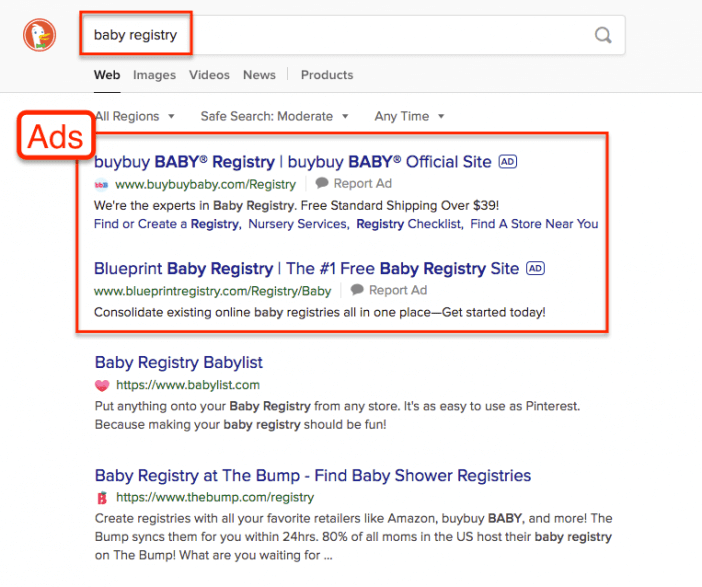
Here’s how to set up your ads & what to keep in mind.
DuckDuckGo’s Advertising Audience & Considerations
There are a few things to keep in mind with DuckDuckGo before looking at the advertising steps.
First, like Reddit users, DuckDuckGo users are wary of ads, tracking, and privacy. That doesn’t mean they hate ads, but they are using DuckDuckGo because of other advertisers’ bad behavior. So pay attention to your messaging and your own website / browser targeting settings and your own privacy policy.
Second, DuckDuckGo runs their ads through the Bing / Yahoo! Search Network. You won’t be able to customize or control as much as you would in a typical PPC ad campaign.
Third, since DuckDuckGo does not have the search volume of Google, Bing or Yahoo! – they don’t have the ad inventory either. DuckDuckGo is on track to get more than 9 billion search queries this year. Google gets more than 5.5 billion search queries per day – that’s more than 2 trillion per year (source). Your campaigns will take longer to test and you won’t be able to “scale” it as quickly.
Fourth, you won’t have as much competition either. While Google has the most volume, that’s also where most advertisers go. Since DuckDuckGo is buried in Bing Ads’ Search Network, you can get a small upper hand via obscurity.
Fifth, since DuckDuckGo campaigns run via Bing / Yahoo – they are auto-tagged as Yahoo Search ads.
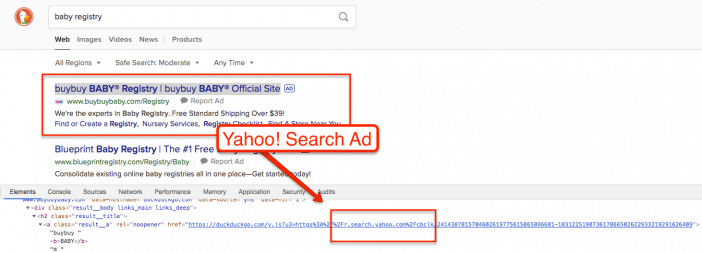
You’ll need to set up your own UTM parameters to know how well the campaign is doing.
Setting Up & Running DuckDuckGo Ads
First, head over to Microsoft Ads (aka Bing Ads) and set up your account.
Second, create a new campaign and ad group. Create your ads and enter your keywords. Be sure to tag your destination URLs so that they don’t show up as CPC / Bing.
Third, set your ad distribution under Advanced Settings. Check Search Network and “Bing, AOL and Yahoo! Syndicated Partners Only”. Uncheck all the other options.
Fourth, launch the campaign! Your ads will now run on DuckDuckGo….
…with one catch – your ad is also running on every other search partner in Bing’s network.
So we’ll have to do a bit of account maintenance to advertise only on DuckDuckGo.
First, check on your campaign once your ads have served a few impressions – your exact timeline will depend on your keywords and budget.
Second, navigate to the Dimensions tab on your Campaign Dashboard. Select “Publisher Website” to show all the search partners showing your ads.
Third, export that list and copy all the URLs except DuckDuckGo.
Fourth, navigate to your Campaign settings. Open up Exclusions under Advanced Settings. Paste your list of URLs into that box and Save.
Fifth, monitor both the website publisher list and your ad performance.
As long as you are excluding other publishers, you’ll be advertising only on DuckDuckGo.
My Results & Next Steps
My results with DuckDuckGo have been mixed. On one hand, my cost per click is literally 10x cheaper than Google for target terms – $0.41 per click vs. $4.93 per click.
That said, I’m also dealing with -80% less click volume. I’m not sure it justifies my time and maintenance, especially since I don’t have long-running campaigns that would be good candidates.
If you have a significant investment in consistent PPC campaigns and a customer segment with privacy concerns – then DuckDuckGo may be worth a test.
Go to your Bing campaigns (or Google Ads campaigns) then copy them into a separate Search Partner test campaign. Check the messaging and URL tagging. Watch the results and adjust on performance.
Read my post on how to advertise your website online for other ideas!
